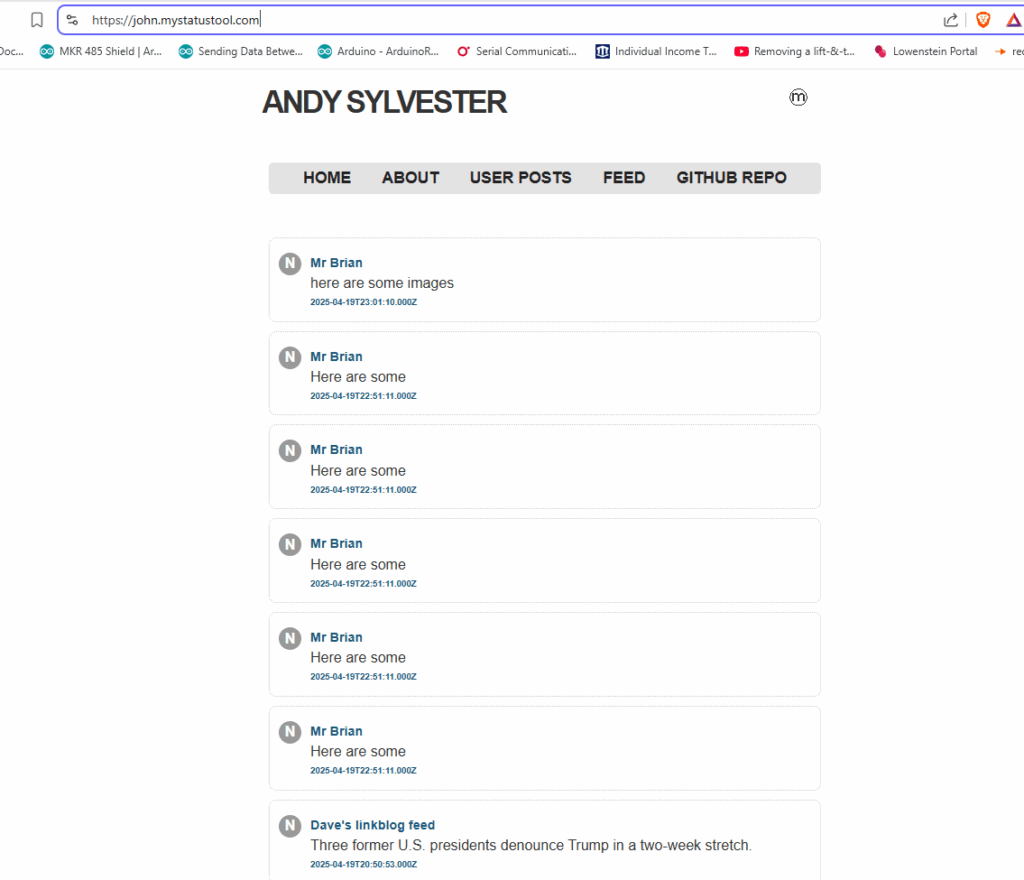I am cross-posting this from my WordLand blog.
The mention of a social network built around RSS has come up again. I added my off-the-cuff thoughts on this topic in this post, but I also wanted to review Dave Winer’s description on the rssCloud website:
There are three sides to the cloud:#
- The authoring tool. I edit and update a feed. It contains a element that says how a subscriber should request to notification of updates.#
- The cloud. It is notified of an update, and then in turn notifies all subscribers.#
- The subscriber. A feed reader, aggregator, whatever — that subscribes to feeds that may or may not be part of a cloud. #
I think that these three elements are the minimum features for a social network to exist. By breaking this down into three parts, it is easier to see that multiple applications cane be created or assembled to create a social network. It does not have to be an “all-in-one” application (like Twitter, Mastodon, Bluesky, etc.). Users can use whatever tool they want to create their content, and they can use whatever tool they want to consume the content. Finally, both of those tools can interact with a “cloud server” which performs notification.
So why has this idea/concept not gained traction? I think there are several reasons. Many authoring tools create feeds, but do not support notification. Many subscriber apps read feeds, but on more of a “polling” basis, and not because the app has been notified that a feed has updated. To me, these are places where innovation could start.
I have been waiting for “someone else” to do this work, but “no one” has stepped in to start, so I am going to try adding some “notification” features to some other blogging tools. I would be remiss if I did not point out that there is a RSS Cloud plugin for WordPress blogs, and WordPress.com supports rssCloud. In my experience, though, my self-hosted WordPress blog has not experienced “real-time” performance due to caching of the RSS feed by my host, Bluehost. I have tried many ways to turn this off, with no success. Anyway, there is nothing “stopping” me from innovating here, so here goes!
